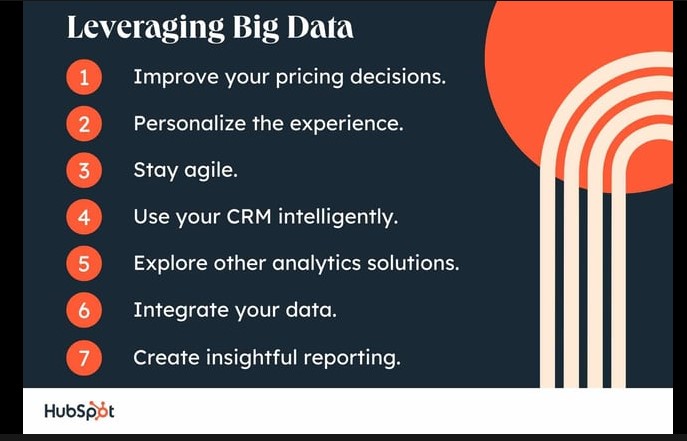Big data analytics is transforming the way businesses operate, providing insights that can inform decision-making and drive growth. By analyzing large volumes of data from various sources, including customer behavior, market trends, and operations, businesses can make data-driven decisions that can lead to improved business intelligence and competitiveness. This article explores the use of big data for business intelligence and its benefits for decision-making.
What is Business Intelligence?
Business intelligence (BI) involves the use of data analytics to provide insights into business performance and inform decision-making. It involves collecting, analyzing, and interpreting data to gain insights into business operations, customer behavior, and market trends.
How Can Businesses Leverage Big Data for Business Intelligence?
Customer Analytics
Big data analytics can help businesses gain insights into customer behavior, including purchasing patterns and preferences. By analyzing customer data, businesses can improve customer engagement, retention, and satisfaction.
Market Analysis
Big data analytics can also help businesses gain insights into market trends and opportunities. By analyzing market data, businesses can identify new markets, optimize pricing strategies, and improve product offerings.
Operations Optimization
Big data analytics can help businesses optimize their operations by identifying inefficiencies and bottlenecks. By analyzing operational data, businesses can streamline processes, reduce costs, and improve productivity.
Benefits of Big Data for Business Intelligence
Improved Decision-Making
By leveraging big data analytics, businesses can make more informed decisions about their operations, customers, and markets.
Competitive Advantage
Big data analytics can provide businesses with a competitive advantage by identifying opportunities and trends that can inform business strategy.
Increased Efficiency
By optimizing operations and reducing costs, big data analytics can improve business efficiency and profitability.
Challenges of Big Data for Business Intelligence
Data Quality
The quality of the data used for analysis can affect the accuracy of the insights generated. Businesses need to ensure that their data is accurate and reliable.
Data Privacy
The use of big data analytics raises privacy concerns. Businesses need to ensure that they comply with relevant regulations and protect personal data.
Technology Adoption
The adoption of big data analytics technology can be a challenge for businesses, particularly those with limited resources or technical expertise.
Conclusion
Big data analytics has the potential to transform business intelligence by providing businesses with insights that can inform decision-making and drive growth. While there are challenges associated with big data for business intelligence, these can be overcome with proper planning and investment. By leveraging big data analytics, businesses can improve decision-making, gain a competitive advantage, and increase efficiency and profitability.
FAQs
- What is business intelligence? Business intelligence (BI) involves the use of data analytics to provide insights into business performance and inform decision-making. It involves collecting, analyzing, and interpreting data to gain insights into business operations, customer behavior, and market trends.
- How can businesses leverage big data for business intelligence? Businesses can leverage big data for business intelligence by analyzing customer behavior, market trends, and operations data to make data-driven decisions.
- What are the benefits of big data for business intelligence? The benefits of big data for business intelligence include improved decision-making, competitive advantage, and increased efficiency and profitability.
- What are the challenges of big data for business intelligence? The challenges of big data for business intelligence include data quality, data privacy, and technology adoption.
- How can businesses overcome the challenges of big data for business intelligence? Businesses can overcome the challenges of big data for business intelligence by ensuring data quality, complying with relevant regulations, investing in technology adoption and training, and protecting personal data.
Read More :
- Big Data in Agriculture : Boosting Crop Yield and Farming Efficiency
- Maximizing the Potential of Big Data: Best Practices for Effective Data Management
- Big Data for Social Good : How Data Analytics is Making a Positive Impact on Society
- Big Data and Marketing: Understanding Customer Behavior for Better Campaigns
- Big Data in Finance : Predictive Analytics for Better Investment Strategies
